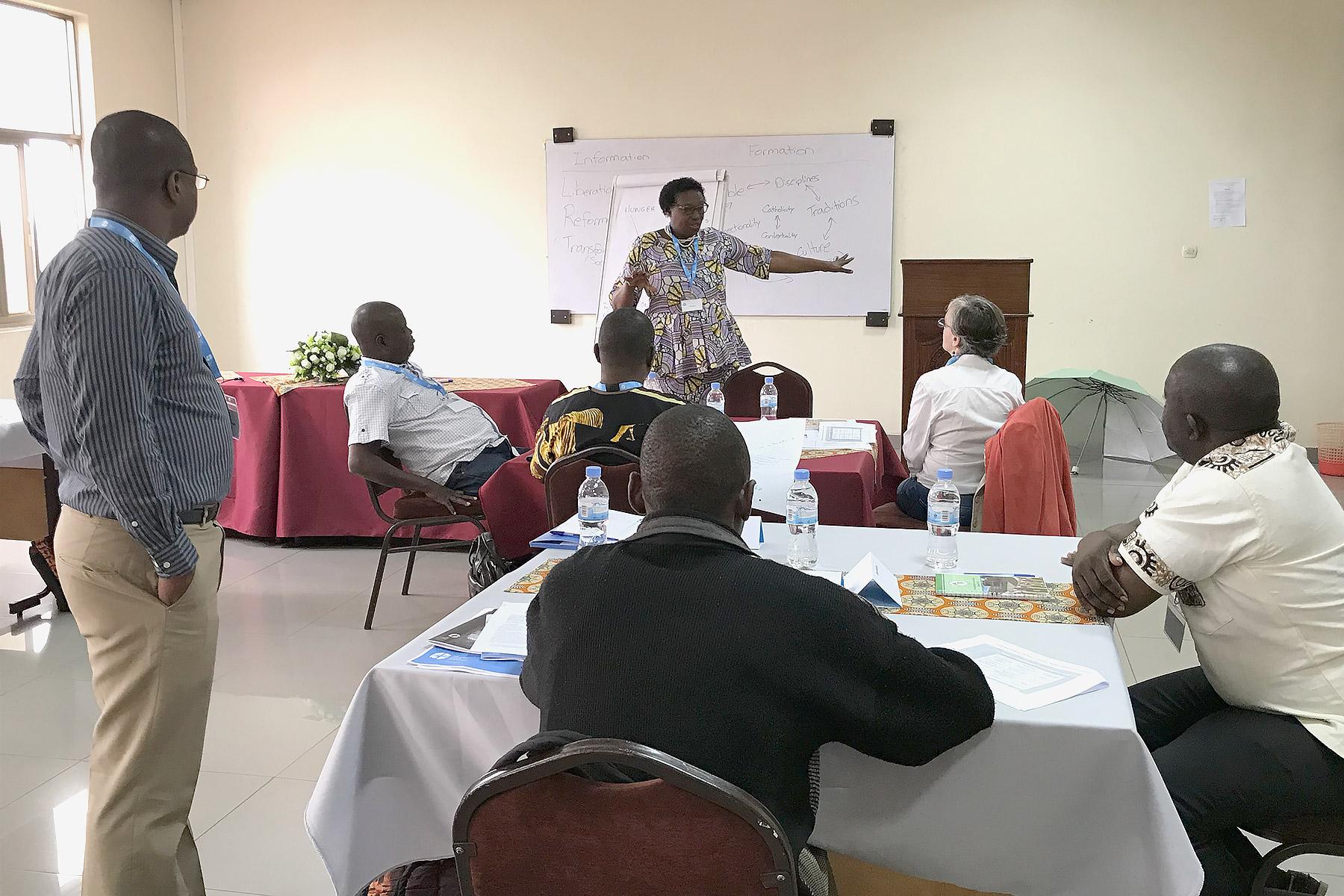New theological education workshop focuses on teaching for change

Participants of the theological education workshop looked at new ways of teaching that are critical and creative. Photo: Chad Rimmer
African theologians explore teaching methods
(LWI) - Education was a driver of lasting social, economic and political change during the Reformation. Today, Lutherans are still committed to transformative education.
The Lutheran World Federation (LWF) recently held a pilot workshop for theologians to explore teaching methods that empower students to take part in theological education that is critical, creative and responds to the students’ context.
Held in Butare, Rwanda, the meeting brought together 12 African Lutheran theology teachers and one from Brazil to study theological, philosophical and pedagogical methods of teaching that bring about change in society.
The workshop related to the fourth United Nations Sustainable Development Goal, quality education. Education for social change requires that teaching and assessment reflect the gifts of the students and equip them to address problems and issues they face, workshop facilitator Rev. Dr Chad Rimmer said.
Rev. Dr Chad Rimmer, LWF study secretary for Lutheran Theology and Practice, said the workshop aimed to strengthen the capacity of the LWF to equip theological leaders to respond to local and global challenges, as well as strengthen the communion through deepened understanding of the Lutheran confessional tradition.
Workshops like this have the power to creatively transform our teaching methods, engaging students in real learning and responding to their needs and hopes.
One participant described the workshop as enriching. “Workshops like this have the power to creatively transform our teaching methods, engaging students in real learning and responding to their needs and hopes.”
Another said teachers should prepare lessons in a way that students were involved in the process of knowledge, that reveal students’ potential and that teachers should not see themselves as custodians of knowledge alone.
The issues students want to address
Rimmer said it was not the role of the educator to simply “donate” information for the student to memorize to be a good Lutheran. “Part of the educator’s task is to help the learner develop tools for their own critical reflection. I want to design courses that begin with the issues students need to address. Gender based violence? Climate change? Poverty? Then I can bring you back to biblical studies, practical and systematic theology, humanities and the sciences and we can find the tools to address it.
“With the living memory of the 1994 genocide as our context, Rwanda provided a profound setting for our teachers to consider the kinds of social, economic and political narratives that need transformation today,” he said. The workshop looked at power structures, as well as sociological and anthropological assumptions at work in the world.
The LWF study secretary said theological education ought to relate to the environment within which students are learning and equip them to critique unjust logic at the heart of the problems they need to address. “Education should free a student to apply our theological tradition to generate meaningful, creative solutions. That model of education brings about change.”
The workshop gave theologians the space to ask, “Are we using participatory methods that have the potential to transform our students? Is the process of learning as liberating as the theology we want to teach? How do we design a course whose objective is geared toward that outcome?”
After considering ways to incorporate new methods of teaching and assessment to a syllabus, participants will now apply their learning in the classroom. The group will gather online next May to reflect on their experience and those of their students.
By offering workshops where theologians can reflect on their vocation as teachers, the LWF was not only practicing transformative theology but creating “learning communities” where students were freed to realize their own capacity to transform the world through critical theological reflection, he said.




